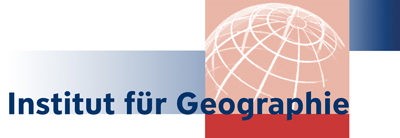Institutskolloquium Kulturgeographie – 10.05.2023: „Relational geographies of labor in the smart city“
Vortragender: Ryan Burns, PhD, FRCGS, University of Calgary
Titel: „Relational geographies of labor in the smart city“
Moderation: Prof. Dr. Blake Walker
Kurzzusammenfassung: Digital technologies are reshaping urban life, but in profoundly and meaningfully uneven ways. Recent critical research on smart cities and platform urbanism have shown deep-rooted capitalist expansion imperatives driving much of their development, while much of the labor that produces that value is underpaid or unpaid. Increasingly, everyday activities like walking a city street or viewing social media content are being drawn into the productive process, and the terrain of capital accumulation is expanding to include altruistic practices like participating in hack-a-thons. This work, however, under-theorizes the role of labor in the smart city: who conducts work, how value is produced, how labor is recruited, and how technologies aid in exploiting that labor.
In this talk, I draw on an ongoing 7-year ethnography to discuss two ways I have theorized these socio-political inequalities of urban technologies. In the first, I show that research has improperly leveraged the notion of „data colonialism“ for contexts that are more properly understood as neo-colonial. A „digital neo-colonialism“ conceptual shift illuminates different processes, actors, and relations that deepen our understanding of the politics of knowledge and value in the smart city. But how is this labor recruited? In the second part of this talk, I discuss how moral sentiments and values are deployed to compel people to (re)produce the smart city. I show that these „moral economies“ elicit feelings of responsibility, altruism, and social good to underwrite what Boltanski and Chiapello term „the new spirit of capitalism“. I conclude by touching on how our conception of actors influencing the smart city need to shift to account for those „interstitial actors“ neither properly „top-down“ nor „bottom-up“ that frame how smartness is conceived and enacted. Accounting for these actors opens new terrain for anti-capitalist social movements that may recapture the potential of digital technologies.
Wann: Mittwoch, 10.05.2023 von 12:30 bis 14:00 Uhr
Wo: Seminarraum, Wetterkreuz 15; 91058 Erlangen-Tennenlohe

